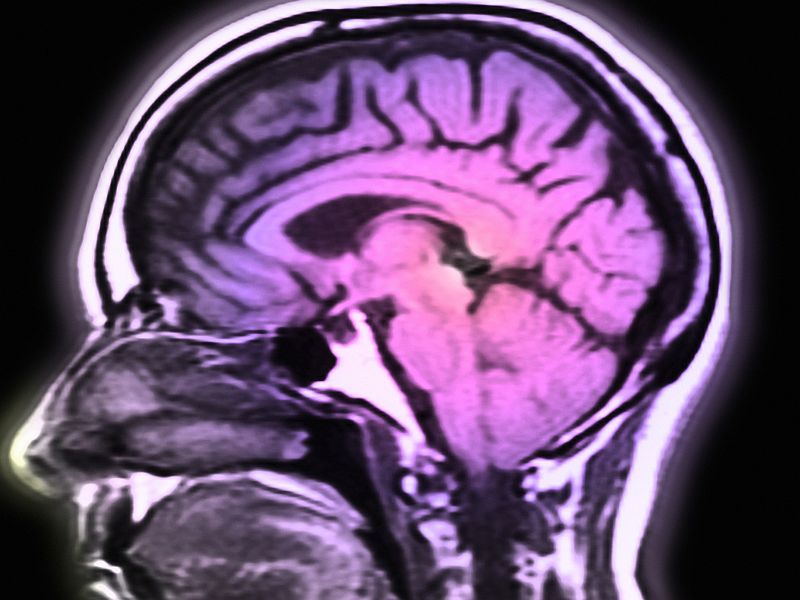
Thursday, December 3, 2015

THURSDAY, Dec. 3, 2015 (HealthDay News) -- Stimulating part of the brain with magnetic pulses may offer the first therapeutic treatment for cocaine addiction, a small new study suggests.
Though the findings are preliminary, patients addicted to cocaine reportedly experienced fewer cravings for the drug after undergoing eight sessions of the experimental treatment over a month.
The findings were published Dec. 3 in the journal European Neuropsychopharmacology.
An estimated 1.4 million Americans suffer from cocaine addiction, according to the U.S. National Institute on Drug Abuse. Unlike smoking, alcoholism and other addictions, however, cocaine addiction has no approved treatments, said study co-author Dr. Lorenzo Leggio, chief of clinical psychoneuroendocrinology and neuropsychopharmacology at the U.S. National Institutes of Health.
"Addiction is a brain disease, not so different from schizophrenia and not so different from diabetes," Leggio said. "One reason we are excited about these findings is that this could open up the possibility for the first time to have a biological basis for a treatment to help patients with cocaine addiction."
The treatment, called repetitive transcranial magnetic stimulation (TMS), works by stimulating the brain's dorsolateral prefrontal cortex with magnetic pulses. This region is involved in controlling inhibition, or impulsive behavior, but it has abnormally low activity in people addicted to cocaine, Leggio said.
"Addiction is a chronic relapsing medical disorder, not bad behavior," Leggio said. "People who use cocaine and other drugs know when they use drugs that it could be dangerous for them and that they can die, but they use in spite of the consequences."
The experimental treatments are based on previous research in rats. Leggio said the rodents stopped compulsively seeking cocaine after receiving brain stimulation with lasers.
The current study involved 32 longtime users seeking treatment for cocaine addiction. For one month, half the patients received various medications to treat depression, anxiety and sleep problems -- all symptoms related to cocaine addiction. The other half received 13 minutes of transcranial magnetic stimulation once a day for five days and then once a week for three more weeks.
After one month, 69 percent of those receiving brain stimulation had not used cocaine (no positive drug tests), compared to 19 percent of those in the comparison group. The stimulation group also reported less craving for cocaine than those not receiving it, the study found.
At this point, patients in the comparison group had the option to receive brain stimulation, and 10 accepted. Eight of them had used cocaine in the first part of the study, but over two months of receiving the stimulation treatment, only three used cocaine at least one time.
"This is important because it's telling us TMS is safe when used with cocaine-addicted patients, and it shows that it may be effective in reducing cocaine use," Leggio said. No serious side effects occurred, according to the study.
Next, Leggio's group plans to test the treatment with a larger group of patients over a longer period.
What's also "unique" is that this study looked at both reduction in cravings and use, said Dr. Scott Krakower, assistant unit chief of psychiatry at Zucker Hillside Hospital in New Hyde Park, N.Y.
"Patients with addiction tend to have more risk-taking behaviors and increased impulsivity, so stimulation to [this brain region] may alter these actions, potentially helping patients cope with addiction," said Krakower, who was not involved in the study.
Transcranial magnetic stimulation can treat other psychiatric disorders as well, said Dr. Alan Manevitz, a clinical psychiatrist at Lenox Hill Hospital in New York City.
Manevitz said he and his partner were the first doctors in New York to use the therapy clinically, first for depression and then for anxiety and post-traumatic stress syndrome. It has been used to treat smoking addiction in other countries, and researchers are investigating its effectiveness to treat chronic pain and obsessive compulsive disorder, he said.
This study excluded patients with major depression disorder, schizophrenia, bipolar disorder and alcoholism, which strengthens the results, Manevitz said.
"It underlies the fact that cocaine addiction and addiction as a whole is a biological process and not just people of weak character," Manevitz said. "Addiction is considered a brain disease because these drugs actually change the brain -- change the structure and how the brain works -- and these changes can be long-lasting."
The cost is approximately $350 per treatment, Manevitz said, and several major insurance companies cover it. Medicare reimburses at a lower rate of less than half the cost, he said.
"Considering the poor results of conventional treatment right now, this is very exciting," Manevitz said. "You can treat patients and monitor their sobriety, and do all this on an outpatient basis."
SOURCES: Lorenzo Leggio, M.D., Ph.D., M.Sc., chief, section on clinical psychoneuroendocrinology and neuropsychopharmacology, U.S. National Institute on Alcohol Abuse and Alcoholism Division of Intramural Clinical and Biological Research, and U.S. National Institute on Drug Abuse Intramural Research Program; Scott Krakower, D.O., assistant unit chief, psychiatry, Zucker Hillside Hospital, New Hyde Park, N.Y.; Alan Manevitz, M.D., clinical psychiatrist, Lenox Hill Hospital, New York City;European Neuropsychopharmacology, Dec. 3, 2015
HealthDay
Copyright (c) 2015 HealthDay. All rights reserved.





























.png)











No hay comentarios:
Publicar un comentario